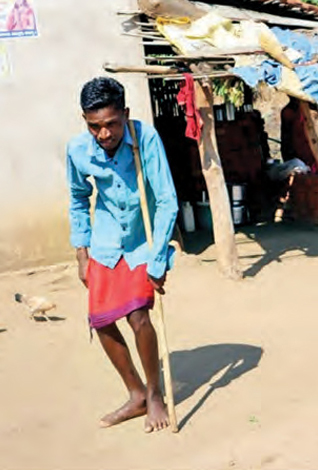
CORPORATE CITIZEN CLAPS FOR VEMBU VAIDYANATHAN (VV), MD & CEO, IDFC FIRST BANK, FOR ACING UP HIS BENEVOLENT ACT ONCE MORE, AND THIS TIME, HE HAS DISTRIBUTED HIS SHARE OF IDFC FIRST BANK’S NINE LAKH EQUITY HOLDINGS, EQUATING TO AROUND Rs.3.95 CRORE ($526,000), AMONGST HIS SUPPORT STAFF
These individuals are not related to him but have been a part of Vaidyanathan’s successful life and including his trainer, who received three lakhs of the booty. The remaining amount was shared between his domestic help and driver, each receiving two lakhs. Vaidyanathan has gifted another one lakh shares each to office staff and another domestic help. In its regulatory filing, the bank officially mentioned that V Vaidyanathan had gifted 9,00,000 equity shares of IDFC First Bank held by him as of February 21, 2022, and also declared that Rukmani Social Welfare Trust disposed of two lakh equity shares for social activities, taking Vaidyanathan’s recent philanthropic contributions close to 11 lakhs of IDFC’s equity shares owned by him. The bank stated that IDFC Bank’s 11 lakh equity shares form part of the regulatory disclosures and that Vaidyanathan does not benefit from these transactions. Vaidyanathan’s latest generous streak is not a one-off and dates back to November 2018, when he first made headlines by gifting shares worth Rs.20 crore at the beginning of his career with IDFC bank. In another touching moment, VV surprised his school Math teacher Gurdial Saini in October 2020 by gifting 100,000 IDFC First shares (then valued around Rs.30 lakh) in return for Saini’s kindness some three decades ago. Saini had lent Vaidyanathan Rs.500 to travel for his interview at the Birla Institute of Technology, Pilani. VV again upped his act on May 14, 2021, and gave away 450,000 shares, then valued at Rs.2.43 crore, to three individuals for buying their homes. VV’s donations are estimated at nearly 38% of his IDFC First stakes since December 2018, when Capital First Bank merged into IDFC Bank. A hearty salute to the Harvard Business School alumnus who remains grounded in balancing work and life ethics with gratitude and appreciation for all those who have supported his life’s journey.
CORPORATE CITIZEN SLAPS THE CHRONIC GROUNDWATER CONTAMINATION ACROSS JHARKHAND, CHHATTISGARH, AND ODISHA TRIBAL BELTS, AND SEEKS PERMANENT SOLUTIONS TO THE HEALTH AND SOCIAL IMPACTS OF FLUOROSIS AND BONE DEFORMITIES
 Bone deformities in earning age
Bone deformities in earning agepopulation leads to poverty
People across central Indian villages continue to suffer from bone deformities and tooth discolouration, the main symptom of dental fluorosis caused by excessive ingestion of fluoride. Bone deformities in individuals in their 30s and 40s, often primary bread earners prevent them from any source of employment, with households slowly straddling into poverty. Unfortunately, with the installed filtration pumps, remaining as non-functional obsolete machinery, villagers continue to depend on contaminated water sources for their consumption. People residing 50km from Dumerpani in Icchapur village, in tribal Chattisgarh lament that physical damage to teeth is a marriage barrier for many adults, seeking to tie the knot with people from outside the region. Khageshwar Singh Patel, one of the authors of a 2016 study in Dongargaon Block in Rajnandangaon district, Chattisgarh, said, “Fluoride pollution is more serious than arsenic contamination as basic rocks are contaminated with fluoride minerals. Overuse of groundwater, for agriculture crops and enormous coal-burning for energy production, tend to cause fluoride contamination of the groundwater in several parts.” Nuapada district, close to the Odisha-Chhattisgarh border, has witnessed decades of fluoride contamination in water leading to discoloured feet, weak physique, swollen legs, and movement disability as some of the typical symptoms impacting households. The aged are worse off, and many remain bedridden. Swadha Dev Singh, Nuapada Collector said that the government has installed 1,101 de-fluoridation plants in the district. “Five mega drinking water projects are going on in the district where 85% of the work has been done. We aim to filter the water and distribute it via pipes,” said Swadha. Tapan Padhi from the Regional Centre for Development Cooperation (RCDC) highlighted that disposal of the filtered items needs scientific intervention. “If processed water and filtered materials containing fluoride are dumped into the nearby ground or farmlands, it could enter into the local area and water body too. So unscientific handling of such parts creates other problems too for the local communities,” said Padhi.